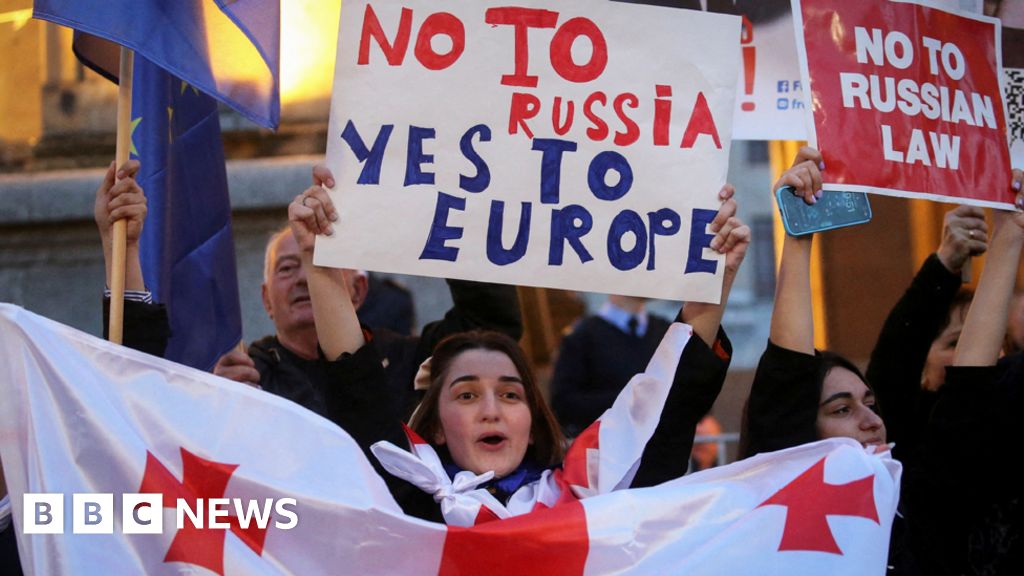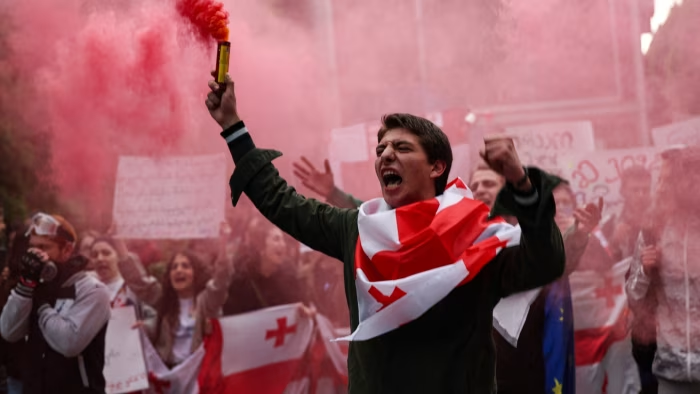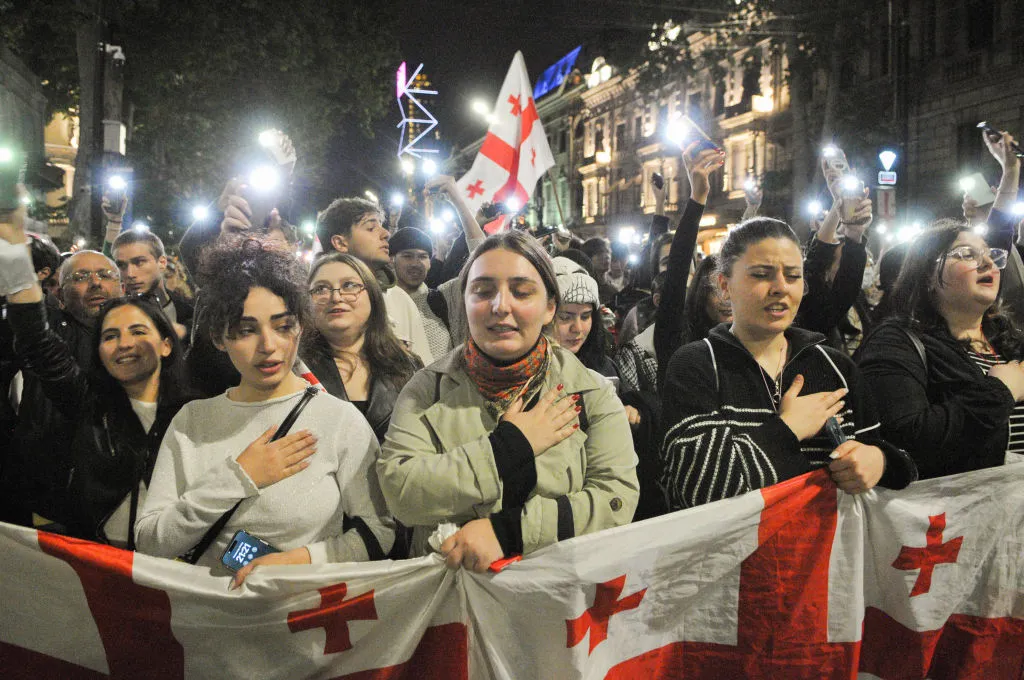
Eduard Shevardnadze – Soviet foreign minister and the second president of independent Georgia – is spinning in his grave. Deposed in the country’s Rose Revolution in 2003 for his government’s corruption and bygone-era politicians, he was nonetheless a proud Georgian who would not have mortgaged his country’s destiny, as the current leadership is doing.
Georgia is a reminder that a country’s ‘progress’ is neither linear nor inevitable.
Once the poster child for progress towards Euro-Atlantic integration and democracy, Georgia is a reminder that a country’s ‘progress’ is neither linear nor inevitable.
Atrophy and capture are just as possible. It is the South Caucasus state’s appropriation – by a small section of the Georgian elite and effectively by Russia – that is of the most concern today.
Georgia remains a country easy to admire. Along with its many charms, 79 per cent of its population – and a similar number of its politicians – are firmly pro-European (and by extension these days, ‘anti-Russian’).
But over the past eight years, the country has become increasingly autocratic. The latest manifestation is the ‘foreign agents’ law, apparently copy-and-pasted from Russia. What the Georgian government is trying to force through is so contrary to the wishes of the vast majority, it is has effectively become a coup d’état against the people.
Twenty-one years on from the last, Georgia is veering towards another popular revolution. Yet this one, if it occurs, is less likely to pass off peacefully. The government has already shown a predisposition toward violence and Russia may get involved – as it did in January 2022 to prevent revolution in Kazakhstan.

Where the power lies in Georgia
It is widely recognized that the real power in Georgia resides with reclusive billionaire Bidzina Ivanishvili. This oligarch made his money in metals and banking in the heady early days of post-Soviet Russia.
The law on transparency of foreign influence has tipped the scales with an electorate no longer willing to tolerate its leaders’ excesses of power.
Returning to Georgia in 2003, he founded the Georgian Dream party, beating Mikheil Saakashvili’s unpopular government, and becoming prime minister for a year in 2012, before stepping down to instead operate from behind the scenes.
As with Russia under Vladimir Putin, both Ivanishvili and Georgian Dream showed early signs of authoritarian inclination (as well as early promise).
But the ship of state has been diverted so far off course that it can no longer be tolerated by an outraged electorate. The leadership’s lack of support for Ukraine – despite Georgia having itself been invaded by Russia in 2008 – was evidence enough.
The law on transparency of foreign influence has tipped the scales with an electorate no longer willing to tolerate its leaders’ excesses of power. First proposed in 2023, the bill was withdrawn in the face of popular objection, with a promise not to reinstate it. This time, however, despite even fiercer popular discontent the government has doubled down and appears determined to see it through.
The Venice Commission, which advises the Council of Europe, has recommended repealing – not revising – the law. Meanwhile the US Congress appears to be offering a way out: preferential trade deals in return for human rights commitments, not least scrapping the law.
The Georgian government’s response remains to be seen. Accepting the US deal may keep Georgian Dream in power – but that may not be in the country’s long-term best interests, given the inevitable harsher crackdowns and the drift away from Europe towards Russia that would follow.

Pinning down Russia’s role
The evidence for Russia being the power behind Ivanishvili – and Georgian Dream – is, at this stage, circumstantial. But it is nonetheless compelling.
With Georgia due to hold parliamentary elections in October, the country is at its most vulnerable.
The Russian state is often proven to be behind acts of extraterritorial violence and of perverting the course of other states.
So it is reflexive, yet entirely reasonable, to assume a direct Russian influence in the Georgian government’s attempts to usher in a Kremlin-style repressive law and turn the country away from its European ambitions.
The law itself (labelled ‘the Russian law’ by some), feels like an instrument in Russia’s hands, with its power to asphyxiate the civil society organizations that have protected Georgia from abuses of power ever since independence. With Georgia due to hold parliamentary elections in October, the country is at its most vulnerable.
The counter-argument – that Russia is not directly behind Georgia’s illiberal turn – is less persuasive. It is true that Georgia and Russia do not have diplomatic relations (their re-establishment would not be tolerated given Russia’s de facto annexation of a fifth of internationally recognized Georgian territory in 2008).
And Ivanishvili is not known to have ever met Putin. Yet ‘back’ and official channels do exist and are credited, for example, with the restoration of trade and flights between the two countries.
One theory supporting the idea that the law is not a result of Russian influence argues that by aping Russian laws, Georgia hopes to mollify Russia and thereby reduce the chances of the Kremlin interfering in its internal affairs.
But that view gives too much credit to the Georgian authorities – especially considering Ivanishvili’s unhinged speech in April where he railed against Western interference (even blaming it for the 2008 invasion). Nor is there any imperative to deter Russia while it is so thinly stretched in Ukraine.
2 thoughts on “Is the Kremlin behind Georgia’s foreign agents law?”